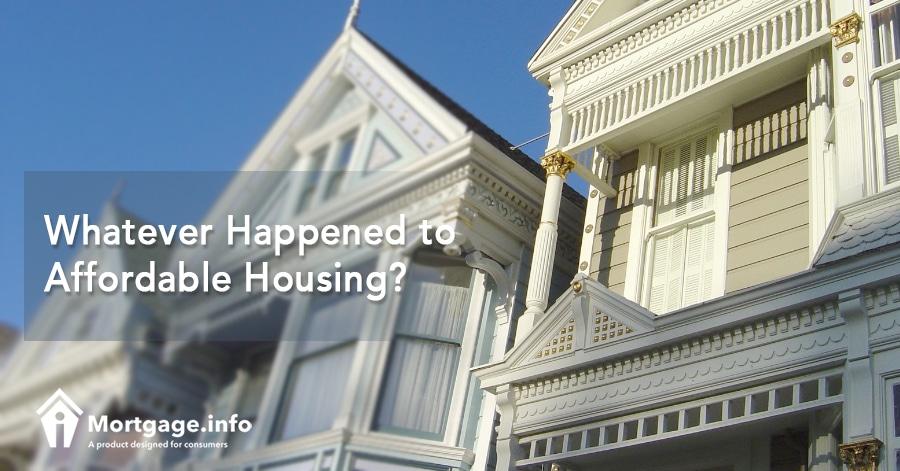While sweeping through the morning mortgage news, one particular article from The Guardian caught my attention. The piece, written by UN-appointed special rapporteur Leilani Farha headlines: “Housing is a human rights issue.” I did a double take. That’s not something you see every day.
Or maybe the joke’s on me. When you deal with figures and statistics on a daily basis, the human factor of the matter can easily get lost on you. I felt somber.
In the article, Farha placed emphasis on the importance of world governments keeping their collective promise to “ensure access to adequate, secure and affordable housing for all by 2030” as part of the Sustainable Development Goals that they all agreed upon.
[sc_content_link label=”Speak to us about your mortgage needs.”]
How near are we to this goal?
According to a 2017 data, over 550,000 individuals were homeless in the US. That’s half a million people every night sleeping on the cold streets while homes sit empty by the thousands.
Do we blame the people or do we turn to the economy? A paper from the National Law Center on Homelessness & Poverty reveals the causes: a) domestic violence (for women), b) unemployment, c) poverty, d) low wages, e) mental illness and the lack of needed services, f) substance abuse, and g) the lack of affordable housing, as the leading cause.
Meanwhile, home prices have climbed to record highs in the past year. And after it plunged to historic lows post Brexit, interest rates are posed to increase. All these are making homeownership even less accessible to the average American. Put that into an economy where wage increases can barely keep up with the appreciation of home values and inflation and you have a recipe for more unstable and financially insecure households.
Market projections for the new year are enthusiastic. But for whose end? Interests are served, but is it really for the people or for the interest of a few? I cannot help but think that Miss Farha is merely squashing water with her call. Still, it is a good call.
We, however, do our best to help you navigate your way through the complex world of mortgage and finance. A little knowledge, we hope, can go a long way in helping you make the best choice you can wherever you are on your journey towards the American dream.
If owning or buying a home is not yet within your plans, you can consider looking into the government’s Affordable Housing programs.
These programs aim to help individuals earning low income to find affordable places to rent. Here’s a quick overview of how the whole thing works.
The US government, with the use of federal funds, works with building owners to subsidize rent for eligible people. That means the government shoulders some of the costs of housing to help you get a place of your own.
[sc_content_link label=”Check out today’s rates.”]
Privately-owned subsidized housing
Private property owners are paid by the government to provide affordable housing for rent to eligible renters. You can find these low-rent apartments at USA.gov/finding-home.
To be eligible for this program, you:
a) must be within the income limit set for the location and size of your family; and
b) have to meet other requirements set by the property owner
Housing Choice Vouchers and Public Housing
For Housing Choice Vouchers
You need to find your own apartment and the government subsidizes part of your rent by paying your landlord the amount allowed by your voucher every month. If the rent exceeds the allowed amount, you may have to cover the difference.
Things to consider:
- You can rent an apartment, townhouse, or single-family home.
- The property must meet the health and safety standards set by the state.
- The amount of your voucher is based on your income, family composition, and local cost of housing.
For Public Housing
You will be renting a house from the local public housing agency based on your gross annual income.
Things to consider:
- The housing options include apartments, townhomes, and single-family properties.
- To make sure that you are “sustainable” as a tenant, a housing agency representative will contact your current and previous landlords.
To be eligible, you:
a) must be a family, senior citizen, or person with disability
b) must have an income within the program’s limits
c) a US citizen or eligible non-citizen
How to apply for the program:
- Contact your local public housing agency
- Fill out and complete the application form. You will be asked about your income, family composition, employer, and bank. The housing agency will verify all the information you logged into the form.
- Forward all the required paperwork and documents such as your ID with photo, birth certificate, and tax returns at the time of your appointment.
The waiting list for the program can be long but it’s worth a shot. You may call the PIH Customer Service Center at 1-800-955-2232 from Monday to Friday between 9am to 5pm ET, or visit USA.gov/finding-home for announcements about the program.
The housing problem is not solely American. It’s a global dilemma that warrants global action. Are we on it? If you still have belief in what we can accomplish as a specie, with hope enough to perhaps suspend disbelief, then maybe we can take Farha’s piece as a much needed reminder.
[sc_content_link]

